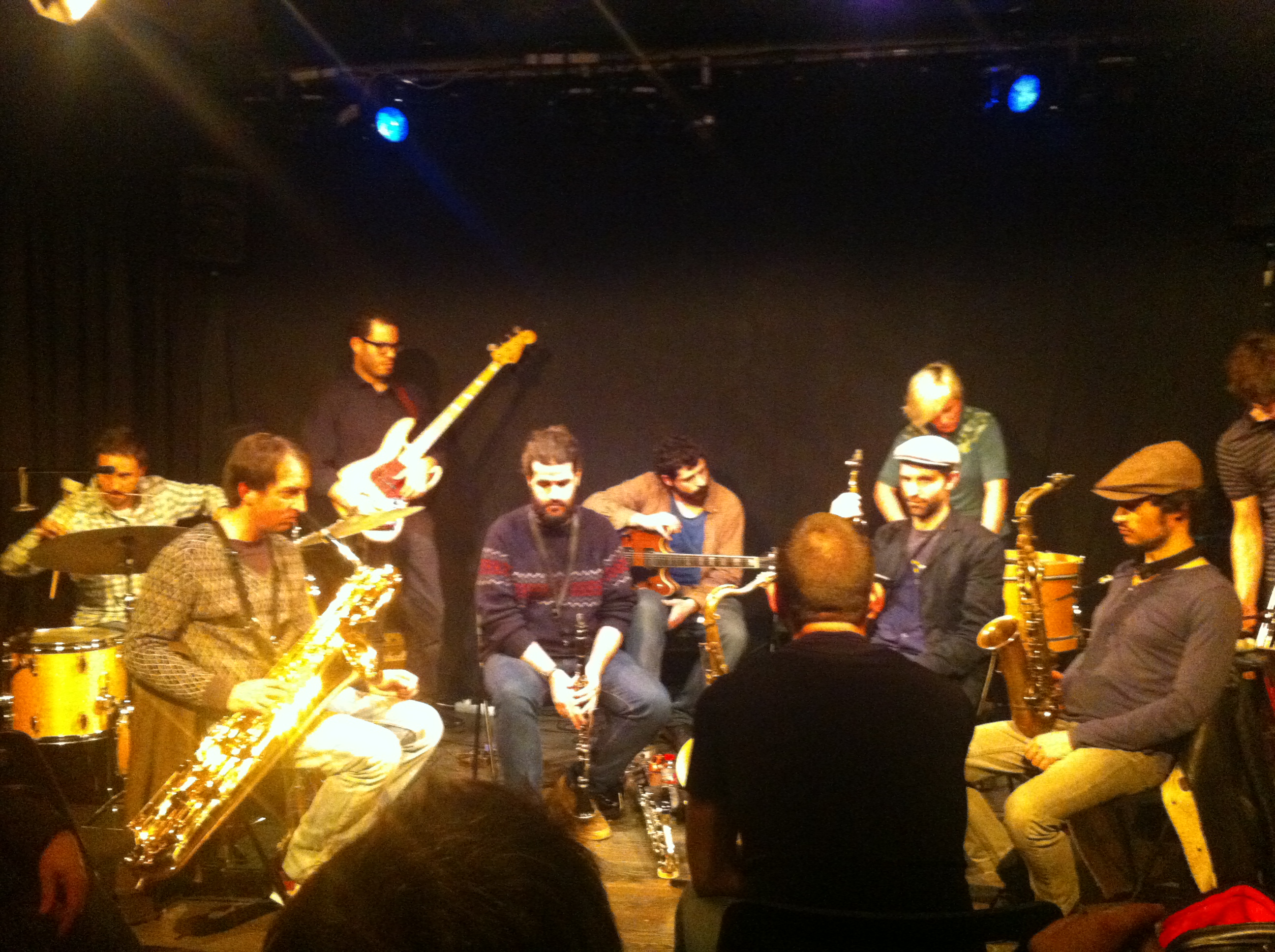
Oriol Roca (drums)
Àlex Reviriego (acoustic bass)
Martín Léiton (electric bass)
Marcel Bagés (guitar)
Núria Andorrà (percussion)
Marcel•li Bayer (bass clarinet)
Alfonso Muñoz (alto saxophone)
Oriol Fontclara (baritone saxophone)
Tom Chant (tenor & soprano saxophones)
Iván González (conducting)
What happens when being outside your comfort zone becomes your comfort zone? –prompted by the sight and sound of an hour’s musical travelling, envelope-pushing, and sonic playfulness, this philosophical nugget is uttered by a fellow watcher-listener after the seventh Memoria Uno performance at Sala Fènix.
It’s a very percussive start. Instantly, Àlex Reviriego is all over the bass, slapping, tapping, vibrating, plunging a drumstick through the strings… and partnered by Núria Andorrà who is a flurry of movement, scraping sounds from the drum with a pair of large pine cones…
Guitar and electric bass add texture, Tom Chant’s tenor begins to grunt, gurgle, and purr, with Alfonso Muñoz (aka Don Malfon) countering him grimace for grimace and squeal for squeal. Pretty soon, it’s ‘all-in’ and the usual ecstatic noise begins to build, aided in no small part by the prolonged ‘agony’ of Fontclara’s baritone.
This first piece progresses through the usual soaring and swooping dynamics – with all nine of the musicians pulled into the wake of the music – before stopping on the proverbial dime, leaving only one of Oriol Roca’s Tibetan singing bowls chiming.
With a storm of electrified amplification, Léiton and Bagés provide the thunder and lightning respectively. Add in some fragmentary bass clarinet, plus percussion, drums and (acoustic) bass filling out the sound even further before a gradual decline in volume leads to a more minimalist passage in which a single guitar chord, the vibration of clothes-pegged bass strings or a cymbal shimmer stand out…
Applause and another start: this time it’s Andorrà’s cymbal interacting with the drumhead offset by Roca’s strings of bells and finger cymbals. Some anticipatory menace courtesy of Bayer’s bass clarinet and we’re lead into an urgent duel between Chant and Muñoz… and so it goes…

It’s a darker, somewhat more serious demeanour, not so much humour as usual… smiles certainly, enjoyment for sure, but the sound is denser. A touch more defiance with the occasional frisson of menace. But then, as was pointed out to me, it is winter. Interesting thought, not least because on checking the aJN archives, the previous performance (in October) was referred to as “autumnal”. Is the mood of Memoria Uno determined by the seasons? Or the weather? Or simply by whatever Iván González ate for lunch? Could be.
(To answer the initial question: I guess you just keep on going… further out…)
